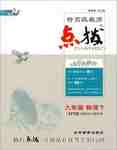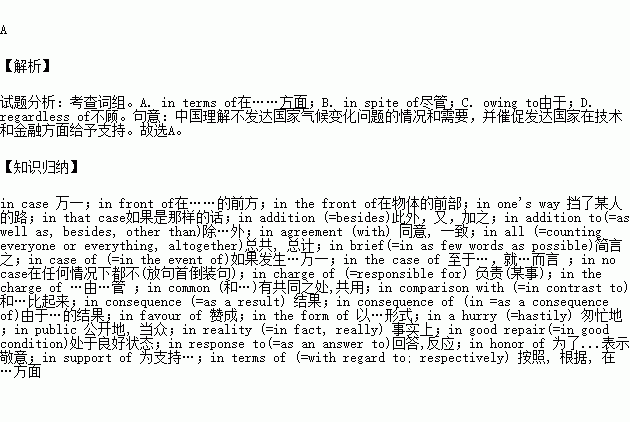题目内容
China understands the situation and needs of underdeveloped countries on the issue of climate change and urges developed countries to support them ______ technology and finance.
A. in terms ofB. in spite of
C. owingD. regardless of
练习册系列答案
 特高级教师点拨系列答案
特高级教师点拨系列答案
相关题目

